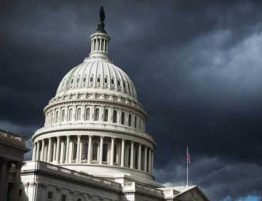
Small Business Reorganization Act (“SBRA”)
The SBRA was designed to provide a streamlined approach to reorganizing small business debts under a Subchapter V of the Chapter 11 bankruptcy provision. Chapter 11, as many know, is nicknamed the “Trump Bankruptcy” because he filed at least four Chapter 11 bankruptcies during his lucrative business career. The United States is different than other countries because the United States encourages the development of business ventures which can be a high risk of failure. The risk is even higher for small business because they lack the capital (and sometimes financial organizational skills) to sustain a downturn such as this pandemic crisis.
Chapter 11 and Subchapter V
A Chapter 11, Subchapter V, bankruptcy will provide a small business with an automatic stay against most collection activities, including landlords, after filing a petition under this Act. That means all creditors generally may not take action to collect debts from the small business or the small business’s property. After filing the bankruptcy, the small business will be called a “Debtor.” For example, while the stay is in effect, creditors cannot sue, garnish wages, assert a deficiency, repossess property, or otherwise try to collect from the Debtors. Creditors cannot demand repayment from Debtors by mail, phone, or otherwise. Creditors who violate the stay can be required to pay damages for such misconduct.
The Debtor small business will have 90 days after filing the bankruptcy to file a Plan of Reorganization. The Plan will tell the Court and its creditors how it plans to pay back its debt, which assets are exempt, and which debts will be discharged. A discharge of the debt means that the debtor will not have to pay that debt to certain creditors and an exempt asset means that such an asset is not available for creditor collection. If the Debtor had secured a deferral on rent payment, for example, the rent will still have to be paid at some time, and the bankruptcy court will permit the debt to be paid back over a longer period of time, three, five or seven years. In other words, a certain percentage of the debt can be repaid each month for years.
What is a small business debtor?
A “small business debtor” is a person or corporation engaged in commercial or business activities. The aggregate noncontingent liquidated secured and unsecured debts as of the date of filing of the petition or order for relief was $2,725,625 but increased by the Coronavirus Aid, Relief and Economic Security Act (CARES Act) to $7,500,000 with a sunset clause of one year from enactment.
The confusion aspect right now is whether the small business should apply and receive the federal Coronavirus funds under the Payroll Protection Plan (“PPP”) and then file for bankruptcy, if necessary, or whether to file for bankruptcy and if necessary in the future apply for the funds under PPP. A Delaware bankruptcy judge on April 30, 2020, denied Cosi’s bid for a temporary restraining order to bar the U.S. Small Business Administration from disqualifying the restaurant chain from applying for a loan under the PPP. On the other hand, on May 1, 2020, a Houston bankruptcy judge enjoined the SBA from excluding bankruptcy companies from PPP loans.



